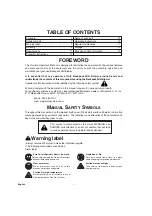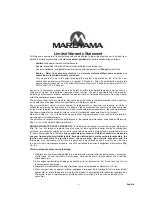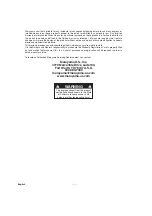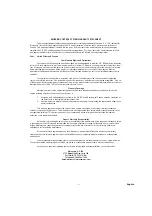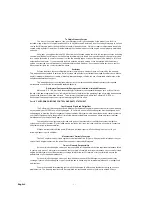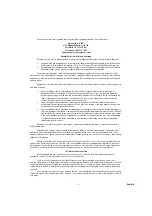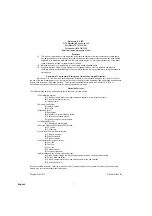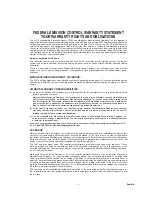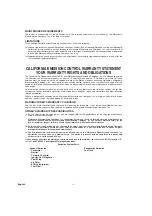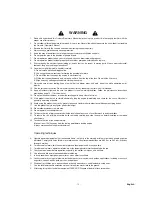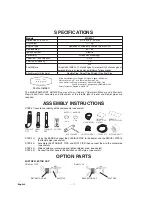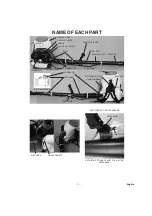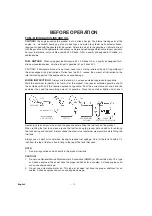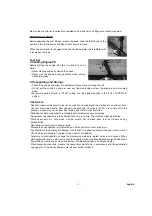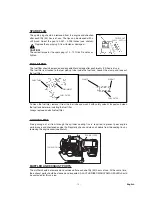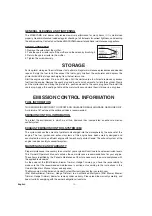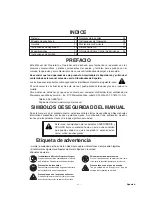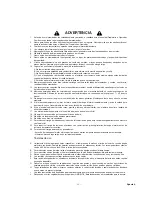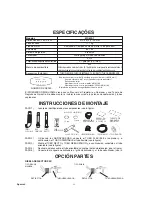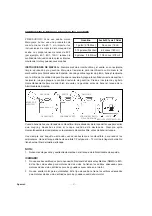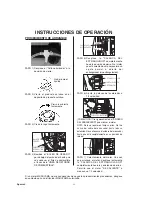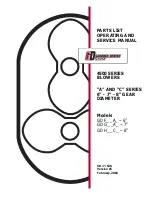
— 14 —
English
CAUTION!
2.Shutting Engine Off
Before shutting the engine off, allow it to idle for a short
while.
• Never stop the engine by closing the choke.
• Never stop the engine during operation while running
above idle speed.
3.Transporting and Storage
• Shut off the engine and allow it to cool before transporting or storing the unit.
• Do not put the unit on dry grass or near any flammable object unless the engine is cold or cooled
down.
The lowest position of lever is "STOP" setting, and the highest position is the "FULL THROTTLE"
setting.
Be sure the mist blower is correctly assembled and all fasteners and fittings are properly secured.
THROTTLE LEVER
Before operating the mist blower, release the knob, knob the throttle grip to the
position in the illustration, and tighten knob to secure in place.
When the mist blower is strapped to the back of the operator, the throttle lever of
is located on the tube.
THROTTLE
LEVER
HIGH SPEED
IDLE SPEED
STOP
HIGH
KNOB
IDLE
Chemicals
*Read the labels of chemicals to be used carefully and understand the method of use and cautions.
Use the chemicals directly after opening the package. Chemicals left for a long time after the
package is open may cause poor discharging due to moisture absorption.
*Mistaking the discharge quantity re category of chemicals may cause damage.
*Do not leave the chemicals in the chemical tank for a long time. The machine might malfunction.
*Store chemicals in a safe place, and be careful not to break open their containers during
transportation.
*Treat chemical containers to ensure safety.
*Dispose the used chemical or fertilizer bags in a manner that will not cause injury.
*Pay attention to the handling of chemicals and fertilizer. If a chemical enters into eye or mouth, wash it
off with water immediately. If you feel ill, see a doctor immediately.
*According to wind direction, change the discharging method to protect workers and houses. When
discharging chemicals, work from upwind to downwind. Also give consideration to prevent chemicals
from drifting or scattering on crops, enclosures, fish-breeding ponds, and houses nearby.
*When preparing chemicals, prepare the necessary amount only in accordance with the established
spraying plan. If too much chemicals are left over, action is difficult.


